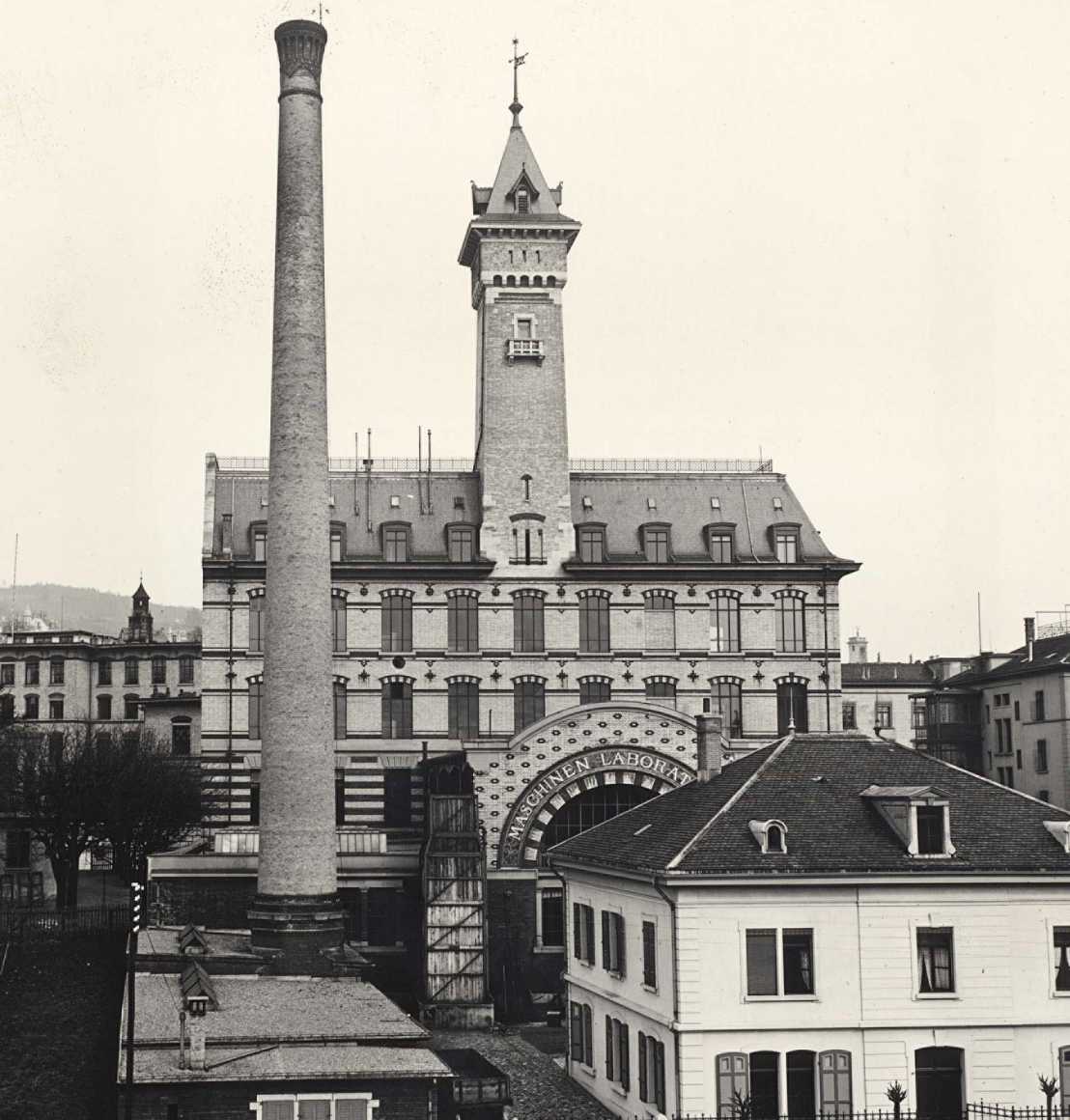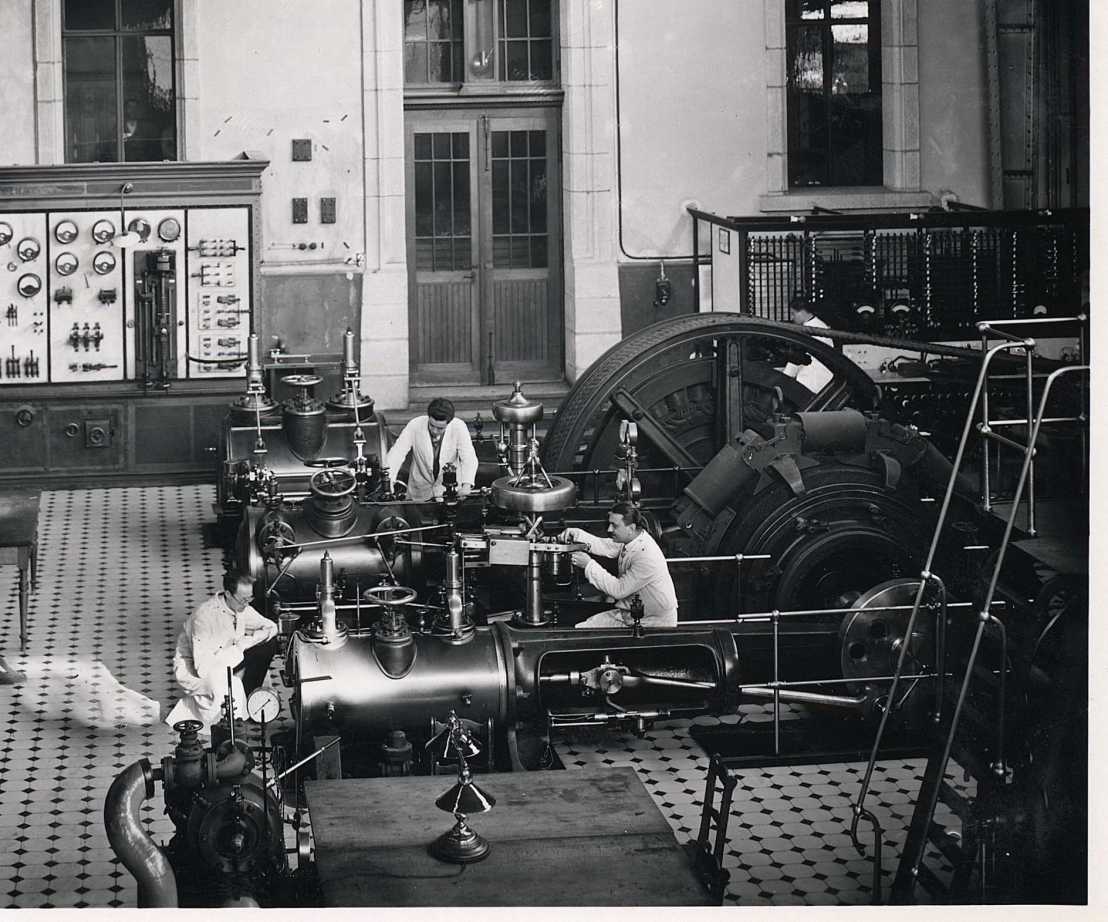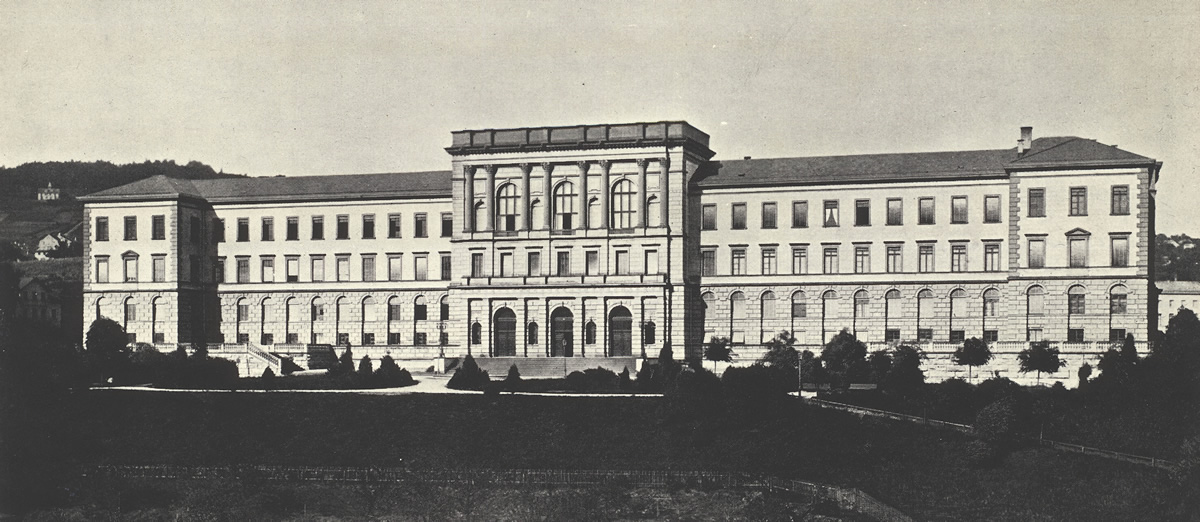Historical background
In 1855, seven years after the Swiss Confederacy was founded, the Federal Polytechnical School opened its doors in Zurich. Right in the middle of the Industrial Revolution, this fulfilled the long-held dream of creating a national university to educate the future Swiss elite.
When it opened, the school comprised six departments, including architecture, the engineering department with road, railroad, bridge and hydraulic engineering and the mechanical engineering department. By 1924, the number of departments had grown to twelve. Today, the ETH is divided into 16 departments, which function as teaching and research units. The Department of Mechanical and Process Engineering (D-MAVT), established in 1999, now employs around 40 professors who research and teach at eight institutes and two independent professorships. While studies initially only lasted four semesters, it now takes six semesters to complete a Bachelor's degree and nine or ten semesters with a Master's degree.

The Buildings
As the main building of the Polytechnic was quickly bursting at the seams, the engineering laboratory on Sonneggstrasse was opened in 1900. The new laboratory was equipped with steam engines, combustion engines, a refrigerating machine and a steam turbine. In the 1980s, the machine laboratory was rebuilt, extended and modernized and the CLA building on Clausiusstrasse was opened. In 2009, the D-MAVT moved into the LEO building on Leonhardstrasse, and in 2014 part of the department moved into the new LEE building “Oberer Leonhard”, which is also located on Leonhardstrasse. Moreover, the department has branch offices in the Technopark innovation park, in the industrial quarter in the Technopark and at IBM in Rüschlikon.

Research
TThe economic development of Switzerland, national and international networking with other colleges and universities and the formation of new departments at ETH Zurich have gradually changed the research of the Department of Mechanical and Process Engineering. Areas such as hydraulic machines, refrigeration technology, precision engineering and textile machines were discontinued following changes of professors. Research on machine and apparatus components more and more takes a back seat in favor of product-, system- and process-related aspects. Instead of time-consuming experiments, researchers are increasingly using calculation and simulation methods. Experiments continue to have a considerable financial impact due to costly new measurement methods such as laser technology. Interdisciplinary fields of knowledge are expanding the field of research, for example mechatronics and robotics (mechanical engineering, electrical engineering, computer science), process engineering (mechanical engineering, chemistry, biology) and energy technology (mechanical engineering, physics, chemistry). In addition, economic, social, and environmental aspects are becoming more relevant in teaching and research.
Teaching
Economic development and the introduction of universities of applied sciences strengthen and broaden basic engineering and scientific knowledge. Studies at ETH are becoming increasingly scientific. An important step is the changeover from diploma studies to Bachelor's and Master's studies in 2002: European degrees are standardized to increase student mobility. After the basic Bachelor's degree, the department now offers seven different Master's degree programs.
